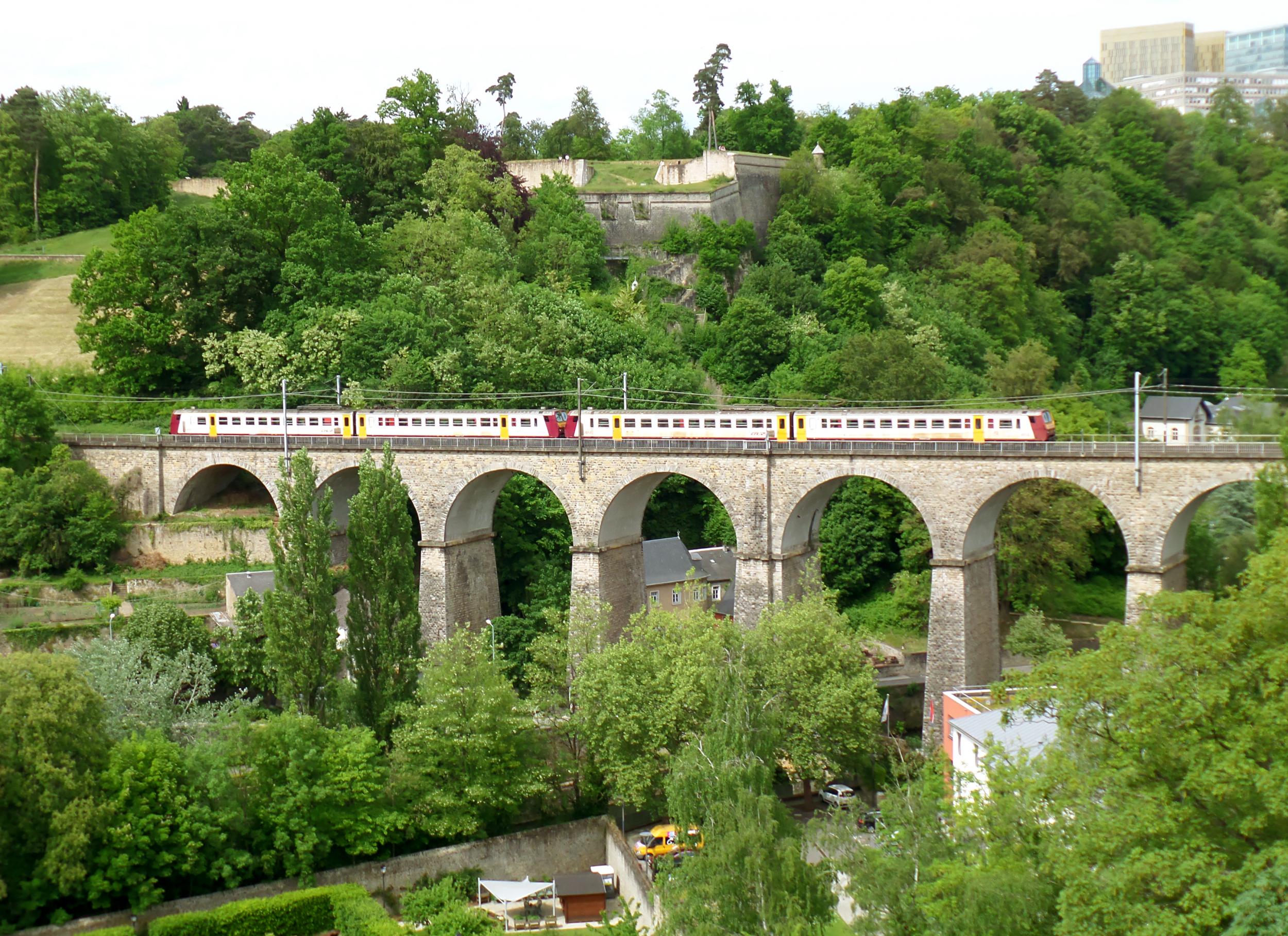Climate change is bringing Britain to boil. So let’s make all public transport free like Luxembourg
Car pollution is a huge contributor to greenhouse gas emissions. Which is why we desperately need to incentivise other forms of transport instead

Your support helps us to tell the story
From reproductive rights to climate change to Big Tech, The Independent is on the ground when the story is developing. Whether it's investigating the financials of Elon Musk's pro-Trump PAC or producing our latest documentary, 'The A Word', which shines a light on the American women fighting for reproductive rights, we know how important it is to parse out the facts from the messaging.
At such a critical moment in US history, we need reporters on the ground. Your donation allows us to keep sending journalists to speak to both sides of the story.
The Independent is trusted by Americans across the entire political spectrum. And unlike many other quality news outlets, we choose not to lock Americans out of our reporting and analysis with paywalls. We believe quality journalism should be available to everyone, paid for by those who can afford it.
Your support makes all the difference.Would you be able to place Luxembourg on a map? Many wouldn’t, and yet the tiny western European country – home to about 600,000 people – could well be emerging as a trailblazer in the fight against climate change.
From March next year, passengers will no longer be charged to use the trains, trams and buses traversing the Grand Duchy, as it’s officially called. In light of the past week’s Saharan heatwave singeing Britain at record temperatures, we should be holding Luxembourg up as an example of a country that’s actually doing something about the scorching trend. That is, something more effective than bulk-buying fans, telling people to carry a water bottle, or complaining on Twitter.
Media outlets are peculiar beasts. They jump on any opportunity to declare a climate crisis and are the first to tell us we’ll boil to death unless we stop using disposable coffee cups. Then their tone swiftly changes as soon as the real effects of said climate crisis materialise in an uncomfortably real way.
On Thursday evening, as I stood on the Tube during rush hour, desperately trying to ignore the smell of bodily odours thickening in the air and the droplets of sweat pooling basically everywhere, I flicked through a perspiration-stained newspaper to find it plastered with pictures of thrill-seekers plunging into the Thames, lidos packed like sardine cans, and everyone scoffing ice cream. One large image showed a graceful yogi in athleisure wear saluting the sun as it rose over Hyde Park. How romantic.
Most of this week, mainstream coverage has at best featured a perfunctory reference to “academics” warning of rising sea levels and “health professionals” telling the elderly to stay hydrated. But where are the doomsday projections now? Have we suddenly forgotten how much we love Greta Thunberg, hate chief naysayer Donald Trump and that the Paris agreement really is awfully, awfully important? And what about ozone holes and species extinctions?
We like talking about the effects of climate change when it’s convenient to do so and when it lends itself to our agenda, but we’re not connecting the dots when it would be most pertinent to do so. Most importantly we’re failing to adopt sweeping changes and radical policies in the way that Luxembourg is proving to be possible.
According to United Nations research, cities consume 78 per cent of the world’s energy and produce more than 60 per cent of greenhouse gas emissions, yet they only account for just under 2 per cent of the earth’s surface. Rapid urbanisation is exacerbating this imbalance. To limit global warming in the way we all claim to want to, we need to dramatically overhaul how we use energy and infrastructure and transportation is a significant part of that.
Cars account for about 40 per cent of all global greenhouse gas emissions from transportation. Encouraging the 8 million people who live in London to use public transport would not only dramatically improve congestion and therefore quality of living, but it would also slash emissions in one of Europe’s most polluted cities.
Though not obviously comparable to London, Luxembourg City shares many of the capital’s challenges. Housing costs in the centre of both places are largely prohibitive. In Luxembourg, that means about 180,000 people commute into the country from neighbouring France, Germany and Belgium every day. Research by data and analytics company Inrix, meanwhile, ranked the UK as the fouth most congested developed country in the world and the third most congested in Europe, with drivers spending an average of 32 hours a year in traffic during peak hours.
Luxembourg – with its favourable taxes, entrenched financial industry, picturesque castles, excellent benefits and top quality schooling – is already being touted as a post-Brexit hub for those choosing (or being forced) to leave London. British expats I’ve spoken to have raved about the high quality of living. Many have no plans to return to the UK any time soon. At this rate fresh air and clear roads could become another incentive to relocate. It might sound basic, but the next heatwave is bound to strike soon.
Join our commenting forum
Join thought-provoking conversations, follow other Independent readers and see their replies
Comments